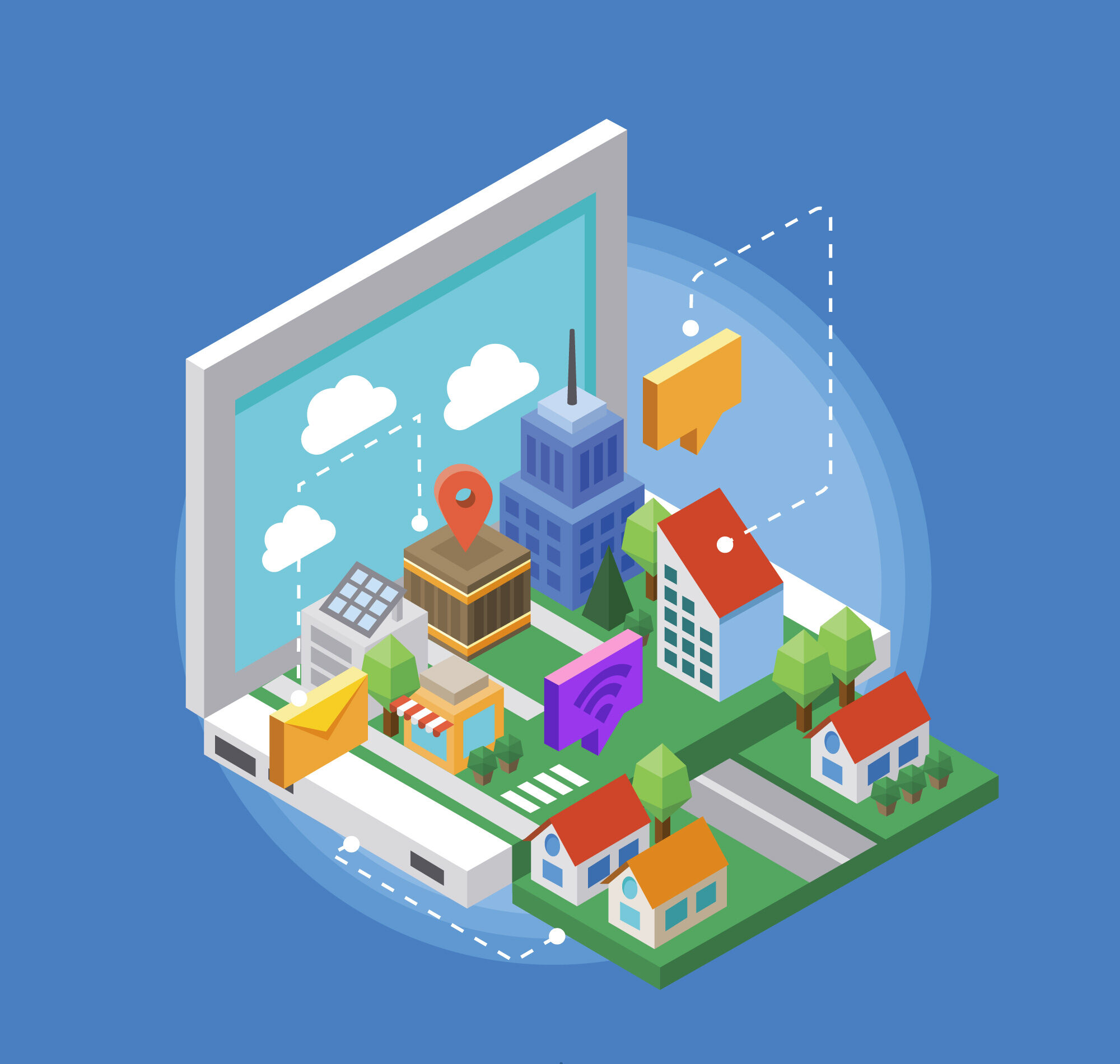
The world of real estate is undergoing a digital revolution. From buying and selling properties to managing rentals and making investments, technology is transforming every aspect of the industry. In this article, we will explore the future of digital real estate solutions future and the innovations that lie ahead.
Virtual Tours and Augmented Reality
Virtual tours and augmented reality (AR) are changing the way people buy homes. Instead of visiting multiple properties in person, buyers can now take virtual tours from the comfort of their own homes. Using VR headsets or even just their smartphones, they can explore properties in 3D, seeing every room and detail as if they were there in person. AR can superimpose digital images onto the real world, allowing buyers to see how furniture would look in a room or how a garden might be landscaped. This digital real estate solutions future makes the home buying process more convenient and efficient, saving time and effort.
Online Property Marketplaces
Online property marketplaces are becoming increasingly popular. Websites and apps like Zillow, Realtor.com, and Redfin provide a platform for buyers, sellers, and renters to connect. These platforms offer detailed listings with photos, videos, and essential information about properties. Advanced search filters help users find homes that meet their specific needs, such as location, price range, and number of bedrooms. Online marketplaces also provide tools for scheduling viewings, making offers, and even closing deals, streamlining the entire process.
Blockchain for Secure Transactions
A secure and transparent digital record-keeping system, blockchain is shaking up the way real estate transactions are conducted. This digital real estate solutions future technology boasts a tamper-proof ledger that can efficiently track all property dealings.. In real estate, it can be used to create smart contracts that automatically execute when certain conditions are met. This reduces the need for intermediaries like lawyers and brokers, speeding up transactions and reducing costs. Blockchain also ensures that all parties have access to the same information, reducing the risk of fraud and disputes.
Big Data and Analytics
Big data and analytics are providing valuable insights into the real estate market. By analyzing large datasets, real estate professionals can identify trends, forecast market conditions, and make informed decisions. For example, big data can reveal which neighborhoods are up-and-coming or which types of properties are in high demand. This digital real estate solutions future helps investors and developers make smarter choices about where to buy or build properties. For individual buyers and sellers, big data can help determine the best time to buy or sell a home.
Artificial Intelligence and Machine Learning
Artificial intelligence (AI) and machine learning are enhancing many aspects of real estate. AI-powered chatbots can assist buyers and renters by answering questions and providing information 24/7. Machine learning algorithms can predict property values, helping buyers and sellers make better decisions. AI can also be used to analyze property images and videos, automatically identifying features and defects. This technology makes the real estate process more efficient and accurate.
Smart Home Technology
Homes are transforming into tech havens, with smart features becoming a major draw for potential buyers. These residences boast a network of controllable devices, from thermostats and lighting to security cameras and appliances, all conveniently managed from afar. Users manage these devices via smartphones or voice-activated assistants such as Alexa and Google Home. Smart home technology not only adds convenience but also improves energy efficiency and security, making properties more attractive to buyers and renters.
Real Estate Crowdfunding
Real estate crowdfunding platforms are opening up new opportunities for investment. These platforms allow individuals to invest in real estate projects with relatively small amounts of money, pooling their resources with other investors. This makes real estate investment more accessible to people who might not have the funds to buy properties on their own. Crowdfunding also allows investors to diversify their portfolios by investing in multiple projects, reducing risk.
Digital Mortgages
Digital mortgages are simplifying the home loan process. Traditional mortgages often involve a lot of paperwork and lengthy approval times. Digital mortgage platforms allow borrowers to complete applications online, upload documents, and track the status of their application in real time. These platforms use algorithms to quickly assess creditworthiness and determine loan terms. This speeds up the approval process and makes it more convenient for borrowers.
Remote Work and Real Estate
The rise of remote work is influencing real estate trends. As more people work from home, the demand for properties with home offices and high-speed internet has increased. People are also moving away from crowded city centers to suburban or rural areas, where they can get more space and better quality of life. Real estate professionals are adapting to these changes by focusing on properties that meet the needs of remote workers.
Environmental Sustainability
Sustainability is becoming increasingly important in real estate. Green buildings, which are designed to be energy-efficient and environmentally friendly, are in high demand. Technologies such as solar panels, energy-efficient windows, and green roofs are being incorporated into new developments. Sustainable practices not only reduce the environmental impact of buildings but also lower utility costs for owners and tenants.